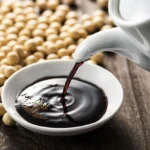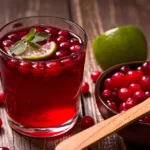As a health enthusiast and a fan of cold-pressed juice, I understand the frustration of seeing your favourite juice go bad before you can finish it. How long does cold-pressed juice lasts is a common question among juice lovers, and it’s a valid concern.
The problem with traditional juicing methods is that they expose the juice to heat and air, causing it to degrade faster. However, cold-pressed juice offers a solution to this issue. With its unique extraction process that minimizes oxidation and preserves nutrients, cold-pressed juice has a longer shelf life compared to regular juice.
In this article, I will delve into the shelf life of cold-pressed juice, the factors that affect its longevity, and how you can maximize the freshness of your favourite juices.
What Is Cold-Pressed Juice?
Do you know what cold-pressed juice is? I’ve had the opportunity to explore cold-pressed juice and it’s a method of juicing that involves pressing fruits and vegetables to extract the juice without using heat. This process helps retain more nutrients and enzymes compared to traditional juicing methods. The result is a fresh, vibrant juice that many people believe offers enhanced health benefits.
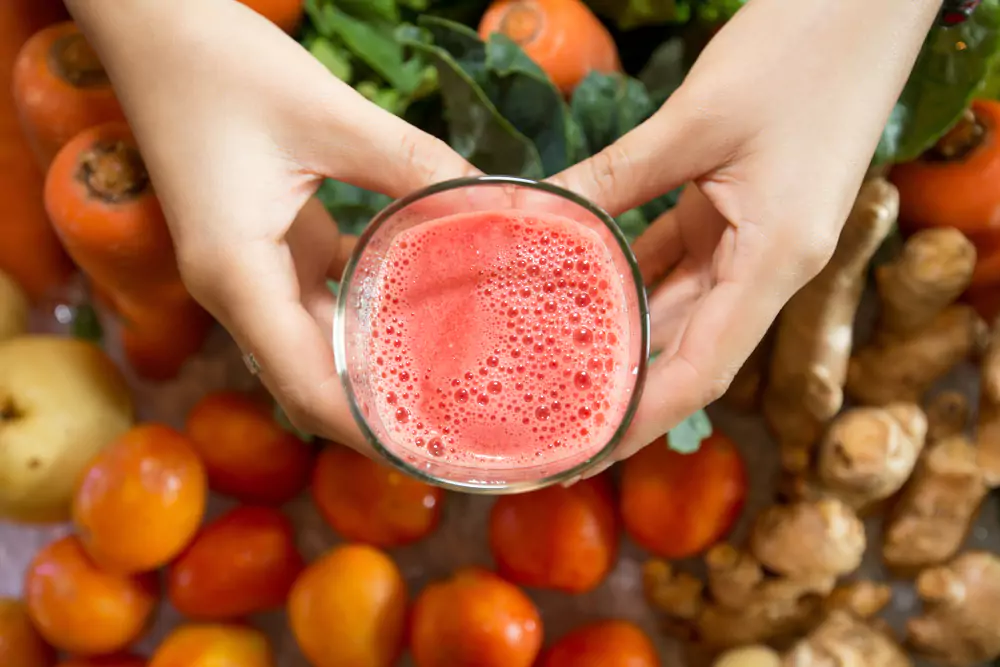
What Is The Shelf Life Of Cold-Pressed Juice?
Well, the shelf life of cold-pressed juice varies depending on the ingredients and storage conditions. Generally, cold-pressed juice can last up to 3-5 days in the refrigerator when stored in an airtight container.
However, some unopened cold-pressed juices with specific preservation techniques or ingredients can last up to 7-10 days. It is essential to consume the juice within its recommended shelf life to maintain its nutritional value and freshness.
How To Increase the Shelf Life Of Cold-Pressed Juice?
You might be wondering how to increase the shelf life of cold-pressed juice. Here are three ways to do so:
Proper Storage
One of the most important factors in extending the shelf life of cold-pressed juice is proper storage. To ensure that your juice lasts longer, store it in a cool, dark place, such as a refrigerator or a cool pantry. Avoid storing it in direct sunlight or near heat sources, as this can cause the juice to spoil more quickly. Additionally, use airtight containers or bottles to prevent exposure to oxygen, which can cause the juice to oxidize and lose its freshness.
Use of Preservatives
Although many people prefer natural and preservative-free juices, using a small amount of natural preservatives can help increase the shelf life of cold-pressed juice. For example, adding a bit of citric acid or ascorbic acid (vitamin C) can help preserve the juice’s colour, flavour, and nutritional content. It is essential to use preservatives sparingly, as excessive amounts can negatively impact the juice’s taste and health benefits.
Pasteurization
Pasteurization is a process that involves heating the juice to a specific temperature for a certain amount of time, then quickly cooling it. This process helps kill harmful bacteria and prolongs the shelf life of the juice. While pasteurization can be beneficial in extending the shelf life of cold-pressed juice, it is essential to note that it may alter the juice’s taste, texture, and nutritional content. Many people prefer unpasteurized, or “raw,” juices for their freshness and higher nutrient content, but if you are concerned about spoilage, pasteurization may be a viable option.
Cold Press Juice Vs Normal Juice
When it comes to cold-pressed juice versus normal juice, I have found that there are significant differences in terms of taste, nutritional value, and shelf life.
Taste and Nutritional Value
In my experience, cold-pressed juice tends to have a fresher and more vibrant taste compared to normal juice. This is because the cold-press process involves using hydraulic pressure to extract the juice from fruits and vegetables, which helps to preserve the natural flavors and nutrients. On the other hand, normal juice is often produced using high-speed centrifugal juicers, which can generate heat and oxidation that may degrade the taste and nutritional content of the juice.
Shelf Life
One of the key advantages of cold-pressed juice is its longer shelf life compared to normal juice. The cold-press process minimizes exposure to heat and air, which helps to preserve the integrity of the juice for a longer period. Normal juice, especially if it is not pasteurized or contains preservatives, may have a shorter shelf life due to potential oxidation and microbial growth.
Shelf Life Of Different Cold-Pressed Juices
Know that the shelf life of different cold-pressed juices can vary depending on the type of juice and how it is stored. Here’s a breakdown of the shelf life for various cold-pressed juices:

Fresh Pressed Apple Juice
Fresh pressed apple juice typically has a shelf life of 3 to 5 days when refrigerated at the proper temperature (between 32°F to 36°F or 0°C to 2.2°C). However, it is best consumed within 24 to 48 hours for optimal taste and nutritional value.
Fresh Squeezed Lemon Juice
Freshly squeezed lemon juice can be stored in the refrigerator for about 2 to 4 weeks. It is important to keep it tightly sealed to prevent oxidation, which can affect its flavor and quality.
Fresh Squeezed Orange Juice
Fresh squeezed orange juice has a shelf life of approximately 2 to 3 days when refrigerated at the recommended temperature. It is advisable to consume it within a day or two for the best taste and nutritional benefits.
Cold Pressed Celery Juice
Cold pressed celery juice can last for up to 3 days when stored in the refrigerator. It is essential to keep it sealed in an airtight container to maintain its freshness and nutrients.
Fresh Pressed Ginger Juice
Fresh pressed ginger juice can be stored in the refrigerator for about 1 week. It is crucial to store it properly in a sealed container to preserve its flavor and potency.
Grapefruit Juice
Grapefruit juice typically has a shelf life of 7 to 10 days when refrigerated. It is recommended to consume it within a week for optimal taste and quality.
Fresh Squeezed Grape Juice
Fresh squeezed grape juice can last for about 7 to 10 days when refrigerated. It should be consumed within this timeframe for the best flavor and nutritional content.
Fresh Squeezed Pomegranate Juice
Fresh squeezed pomegranate juice has a shelf life of approximately 3 to 5 days when refrigerated. It is advisable to consume it within a few days of pressing for maximum freshness and health benefits.
Types Of Juices And Their Storage Duration
| Type of Juice | Storage Duration |
| Orange Juice | 7-10 days in the refrigerator |
| Apple Juice | 7-10 days in the refrigerator |
| Grape Juice | 7-10 days in the refrigerator |
| Cranberry Juice | 7-10 days in the refrigerator |
Benefits Of Cold Press Juice
When it comes to juice( either fresh or bottled cold pressed juice), there are numerous benefits that can be reaped from consuming this healthy beverage. Here are three key benefits that I have personally experienced and researched.
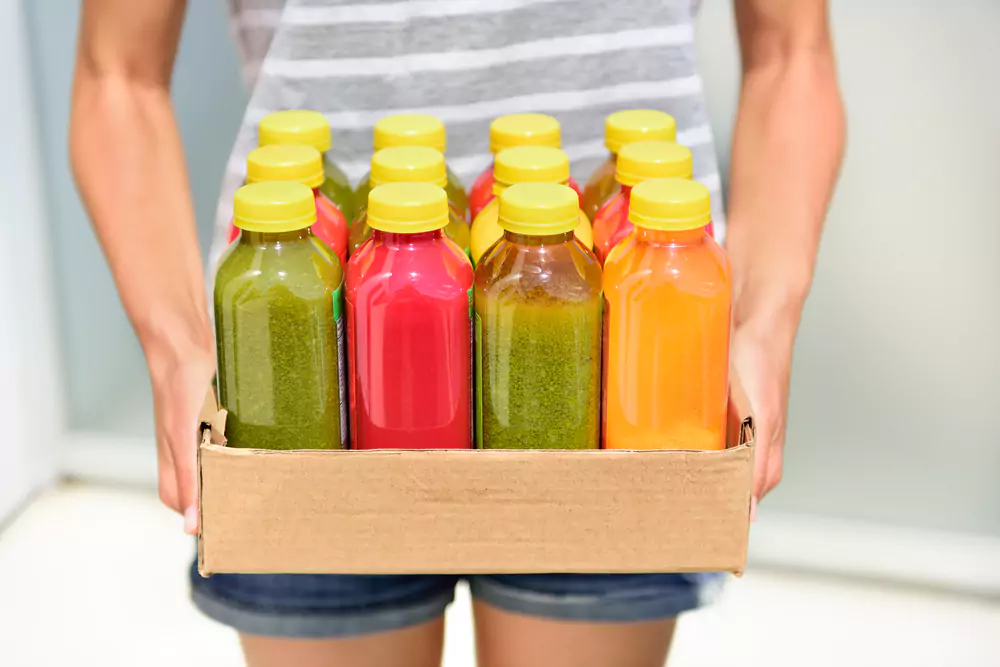
Improved Nutrient Absorption
Cold press juicing extracts more nutrients from fruits and vegetables than traditional juicing methods. This is because cold press juicers use a slow, low-speed process that minimizes heat and oxidation, thus preserving the nutrients within the juice. As a result, cold press juice is richer in vitamins, minerals, and enzymes, which can help improve overall health and well-being.
Increased Energy Levels
Drinking cold press juice is an excellent way to boost your energy levels naturally. The high concentration of nutrients in cold press juice provides a quick and efficient source of energy for the body. Additionally, cold press juices are easily absorbed by the body, allowing for a rapid increase in energy levels. I have personally noticed a significant increase in my energy levels after incorporating cold press juice into my daily routine.
Enhanced Digestion
Cold press juicing helps to break down the fibrous components of fruits and vegetables, making them more easily digestible. This is particularly beneficial for individuals with digestive issues, as cold press juice can help to alleviate symptoms such as bloating, gas, and constipation. Furthermore, the increased nutrient absorption from cold press juicing can help to support overall digestive health.
The Benefit Of Cold-Pressed Juices Vs. Store Bought Juice
In terms of benefits, cold-pressed juices offer several advantages over store-bought juices. I have experienced these benefits firsthand and can attest to their superiority in certain aspects.
Nutrient Retention
One of the primary benefits of cold-pressed juices is their higher nutrient retention. Cold pressing involves using a slow press to extract juice from fruits and vegetables, which minimizes heat exposure and oxidation. This process helps preserve the nutrients, enzymes, and natural flavor of the produce, making cold-pressed juices a healthier option than store-bought alternatives.
Lower Sugar Content
Store-bought juices often contain added sugars to enhance taste and improve shelf life. Cold-pressed juices, on the other hand, are made from whole fruits and vegetables, which means they contain natural sugars but are generally lower in added sugars. This can be beneficial for those looking to reduce their sugar intake and maintain a healthier lifestyle.
Fewer Preservatives and Chemicals
Store-bought juices may contain preservatives and chemicals to extend their shelf life and enhance their appearance. Cold-pressed juices, however, are made without the use of these additives, making them a more natural and healthier option.
Customization and Freshness
Cold-pressed juices can be tailored to individual tastes and dietary needs, allowing for a more personalized juice experience. Additionally, cold-pressed juices are typically fresher than store-bought alternatives, as they are produced and consumed within a shorter timeframe.
How To Cold Press Juice?
You might be wondering how to cold press juice. Here, I will share my personal experience and provide you with step-by-step instructions on how to cold press juice using a cold press juicer.
Step 1: Choose the right ingredients
Select fresh, organic fruits and vegetables that are in season for the best flavor and nutrient content. Wash the produce thoroughly to remove any dirt or pesticides.

Step 2: Prepare the ingredients
Cut the fruits and vegetables into smaller pieces that will fit easily into the juicer’s chute. Remove seeds and peels, if necessary, as some can affect the juice’s taste and texture.
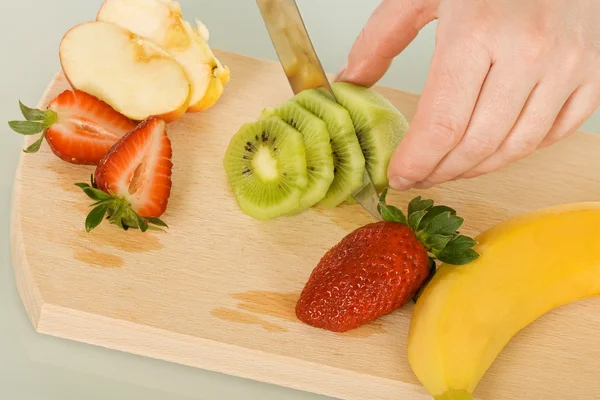
Step 3: Assemble the juicer
Follow the manufacturer’s instructions to assemble the cold press juicer. Ensure that all parts are securely in place and that the juicer is clean and dry.

Step 4: Feed the ingredients into the juicer
Place the prepared fruits and vegetables one at a time into the juicer’s chute. Push them through using gentle pressure to ensure that the juicer can extract the maximum amount of juice.
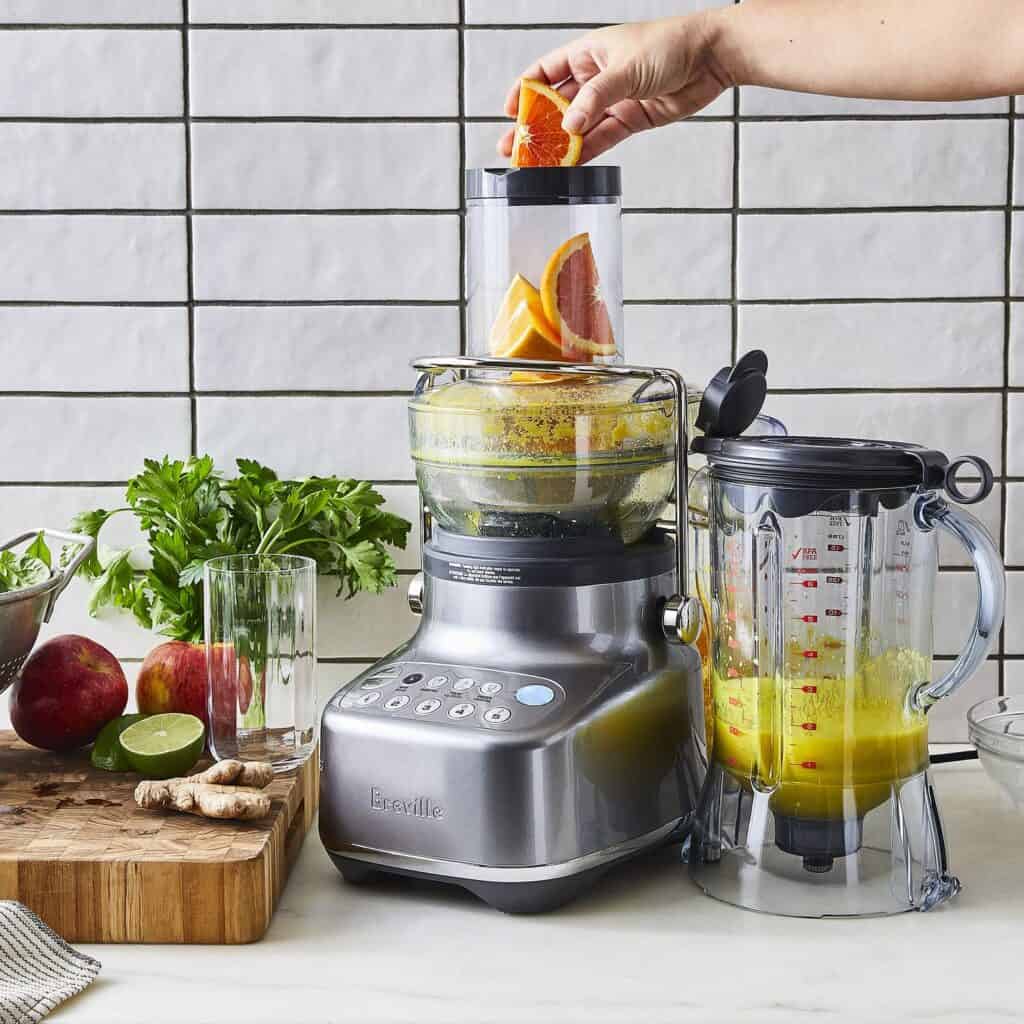
Step 5: Collect the juice
As the fruits and vegetables are juiced, the juice will collect in a separate container. Be sure to use a container that can hold the volume of juice you plan to extract.

Step 6: Clean the juicer
After juicing, disassemble the juicer and clean all the parts thoroughly. This will ensure that your juicer remains in good working condition and that your next juicing session is as efficient as possible.

Step 7: Strain the juice (optional)
If you prefer a smoother juice, you can strain it through a fine mesh strainer or cheesecloth to remove any pulp or sediment. This step is optional, as some people prefer the natural texture of the juice with pulp.

Step 8: Store the juice
Transfer the juice to a clean glass or container, and store it in the refrigerator for up to 48 hours. Be sure to use an airtight container to prevent oxidation and maintain the juice’s freshness.
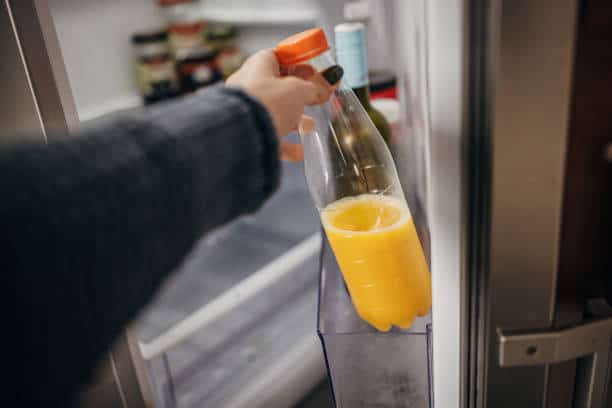
Step 9: Enjoy your cold-pressed juice
Enjoy your cold-pressed juice as soon as possible for the best flavour and maximum nutrient content. You can drink it straight up or mix it with other ingredients to create delicious and healthy smoothies.

Factors Affecting Shelf Life
There are different factors that can affect the shelf life of produce, and understanding these factors is crucial for maintaining the quality and safety of food products. As someone who has worked in the food industry, I have firsthand experience with the impact of various factors on the shelf life of produce.
Using Good Produce
The quality of the produce used plays a significant role in determining its shelf life. Fresh, high-quality produce is less likely to spoil quickly compared to produce that is already damaged or overripe. When I worked in a restaurant, I noticed that using fresh and good quality produce always resulted in a longer shelf life for our dishes.
Using The Right Equipment

Proper equipment usage is essential for preserving the shelf life of produce. For instance, using sharp knives when cutting fruits and vegetables can minimize damage to the cell structure, thus extending their shelf life. In my experience, using appropriate equipment and handling produce carefully made a noticeable difference in how long it stays fresh.
Temperature Abuse
Temperature control is critical for prolonging the shelf life of produce. Exposure to temperatures that are too high or too low can accelerate spoilage. I have seen firsthand how improper storage in refrigerators or during transportation can lead to temperature abuse, resulting in a shortened shelf life for fruits and vegetables.
Acidity
The acidity level of certain fruits and vegetables can impact their shelf life. High-acid foods like citrus fruits tend to have a longer shelf life compared to low-acid foods. Understanding the acidity levels of different produce items is important for determining their optimal storage conditions.
Oxygen Exposure
Oxygen exposure can lead to oxidative reactions in fruits and vegetables, causing them to deteriorate more rapidly. Packaging produced in oxygen-permeable materials or using vacuum packaging techniques can help minimize oxygen exposure and extend shelf life.
Light Exposure
Exposure to light, especially sunlight, can promote the degradation of certain nutrients and compounds in produce. Storing produce in dark or opaque containers can shield them from light exposure and help maintain their quality for a longer period.
Hygiene And Contamination
Maintaining proper hygiene during handling and storage is crucial for preventing contamination and spoilage. Cross-contamination from unclean surfaces or improper handling practices can introduce harmful microorganisms that shorten the shelf life of produce.
How Long Does Homemade Juice Last In The Fridge?
Ideally, homemade juice can last in the fridge for up to 3-4 days. However, it’s important to note that the shelf life of homemade juice can vary depending on factors such as the type of fruit or vegetable used, the juicing method, and whether preservatives are added.
In my personal experience, I have found that citrus-based juices tend to last a bit longer compared to juices made from softer fruits like berries as they have longer expiry dates. To ensure the juice stays fresh for as long as possible, it’s best to store it in a tightly sealed container and consume it within a few days.
How Long Does Cold-Pressed Juice Last In The Freezer?
In terms of cold-pressed juice, the shelf life of the juice depends on the specific ingredients and how it is stored. Cold-pressed juice can last up to 3-4 days in the refrigerator and up to 3 months in the freezer. However, the quality of the juice may decrease over time, as some nutrients and enzymes can be lost during the freezing process.
Conclusion
In conclusion, cold-pressed juice is a healthy and nutrient-rich alternative to traditional juices, but it is essential to store and consume it properly to maintain its freshness and quality. Cold-pressed juice can last for up to 3-5 days when refrigerated and sealed tightly, and up to 6 months when frozen. However, it is crucial to consume cold-pressed juice within 24 hours for optimal taste and nutrient retention.
FAQs
What Is The Downside Of Cold-Pressed Juice?
The downside of cold-pressed juice is that it may lack fiber compared to whole fruits, leading to a faster spike in blood sugar levels.
How Long Does Cold-Pressed Apple Juice Last?
Cold-pressed apple juice typically lasts 3-5 days when refrigerated, but this can vary based on storage conditions and preservatives.
Can You Drink Cold-Pressed Juice The Next Day?
It is generally safe to drink cold-pressed juice the next day, but freshness and nutritional quality may decline over time.
Can You Freeze Cold Pressed Juice?
Yes, you can freeze cold-pressed juice to extend its shelf life, but it may affect the texture and flavor upon thawing.
Does Cold-Pressed Juice Lose Nutrients?
Cold-pressed juice retains more nutrients than traditional methods, but some nutrient loss can occur over time due to oxidation.
How Long Does Centrifugal Juice Last?
Centrifugal juice has a shorter shelf life, usually around 24 hours, as the high-speed spinning may introduce more oxygen and heat, accelerating nutrient degradation.



